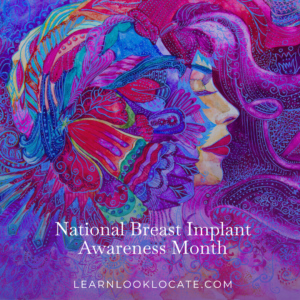
Understanding Breast Implant Illness: An Important Awareness for the Breast Cancer Community
What is Breast Implant Illness?
For this year’s Breast Implant Illness Awareness Month, the breast cancer community needs to learn about a potential complication some patients may face after reconstructive surgeries involving implants – breast implant illness (BII).
Breast Implant Illness (BII) refers to a range of symptoms that can develop in women with breast implants, whether they are saline or silicone gel-filled. Symptoms may include fatigue, brain fog, joint pain, hair loss, rashes, and more.
Possible Causes of BII
While researchers are still investigating the exact causes, some theories suggest BII could be triggered by:
- An autoimmune or inflammatory reaction to the implant materials
- A bacterial biofilm infection growing on the implant surface
- The body’s response to the breast implant surgery itself
Symptoms can start soon after getting implants or years later.
Diagnosing and Treating BII
There is no single test to definitively diagnose BII. Doctors must rule out other conditions by evaluating your symptoms, and medical history, and running various tests as needed.
A commonly recommended treatment is to have the breast implants surgically removed. This may involve:
- Removing just the implants (implant removal)
- Removing the implants and the surrounding scar tissue capsule (en bloc capsulectomy)
Many women report their BII symptoms significantly improve or resolve after explanation, though results can vary. It may take around 3 months to see full benefits.
Other Breast Implant Complications
In addition to BII, other potential long-term breast implant complications include:
- Hardening of scar tissue around the implant
- Implant ruptures
- Implant shifting out of position
- Undesired changes to the breast appearance over time
These issues may require revision surgeries to remove and replace the original implants.
Open Conversations for Informed Choices
As we observe Breast Implant Illness Awareness Month, it’s so important for the breast cancer community to have open and honest conversations about the potential risks of breast implants used in reconstruction. If you are a previvor considering preventative mastectomy with implant reconstruction, make sure to carefully weigh the pros and cons. Talk to your doctors about all options.
By raising awareness of BII, Learn Look Locate hopes to promote informed decision-making so our brave survivors and previvors can make choices that prioritize their long-term health and quality of life.
